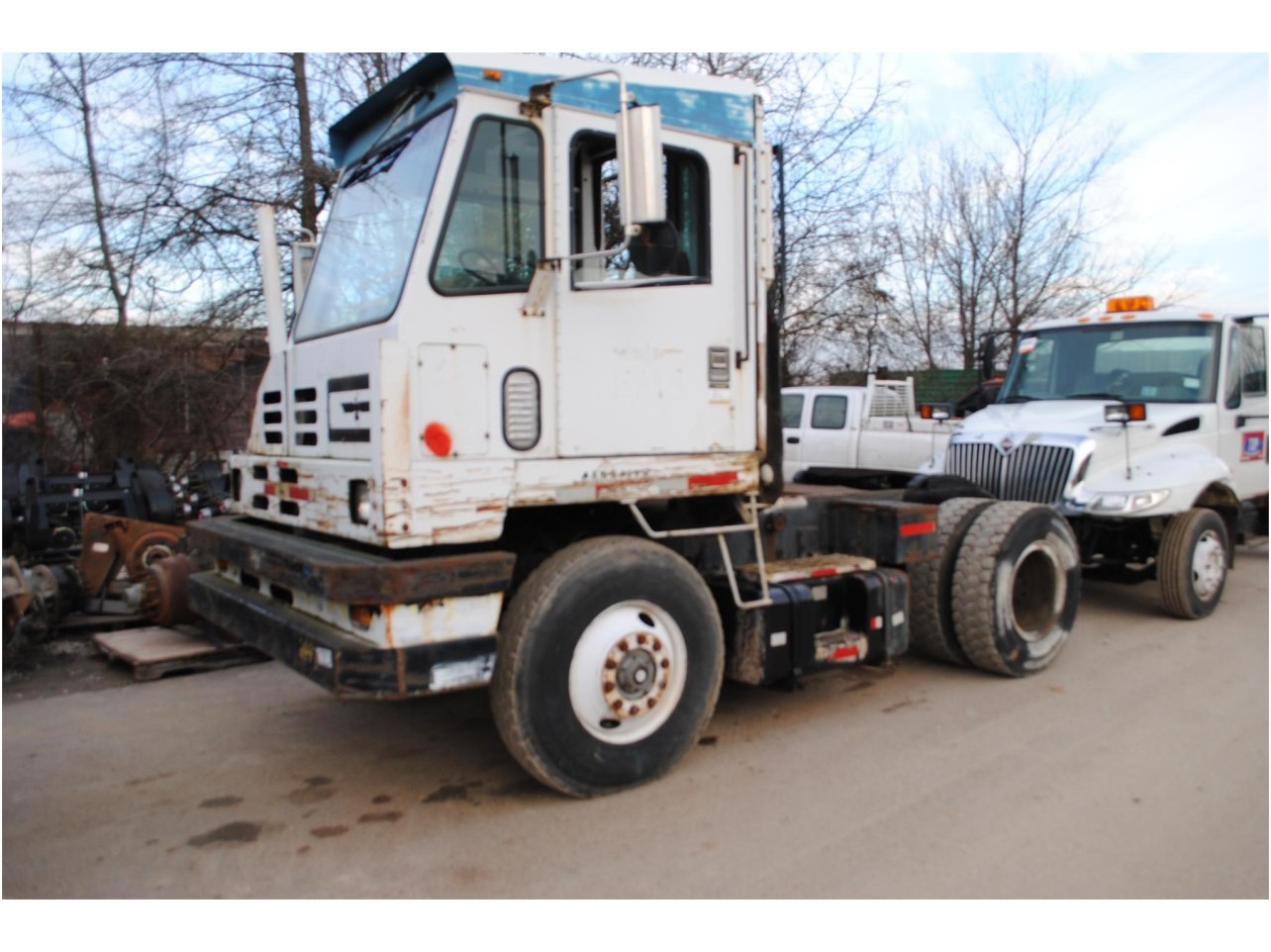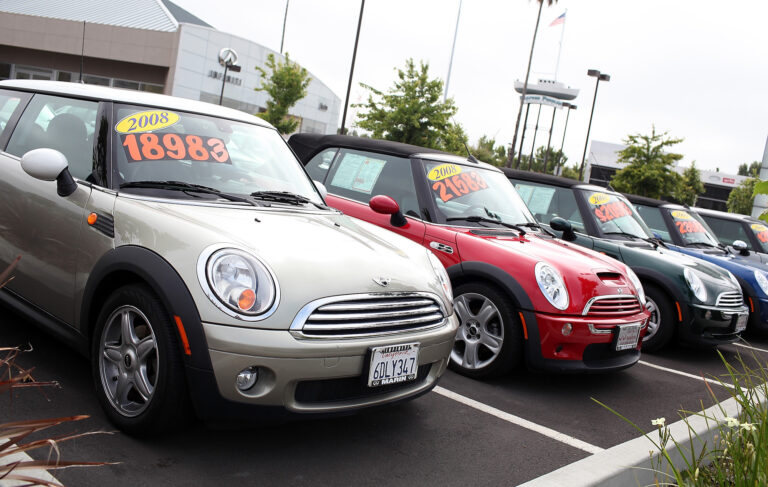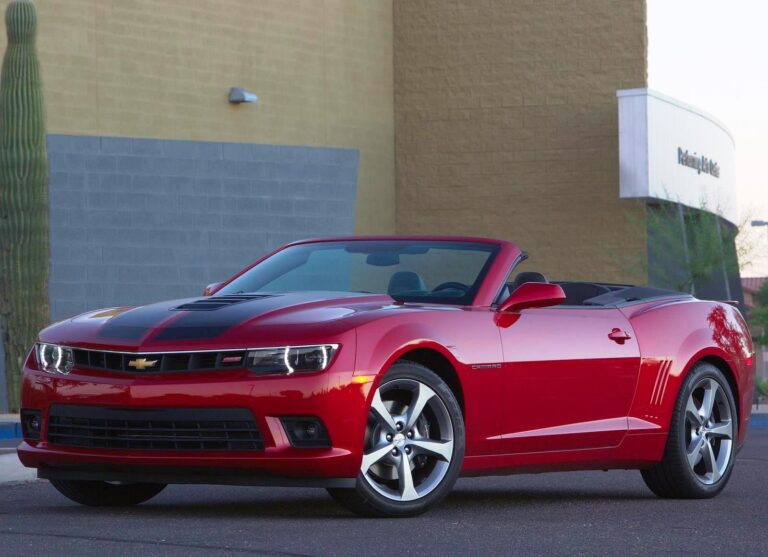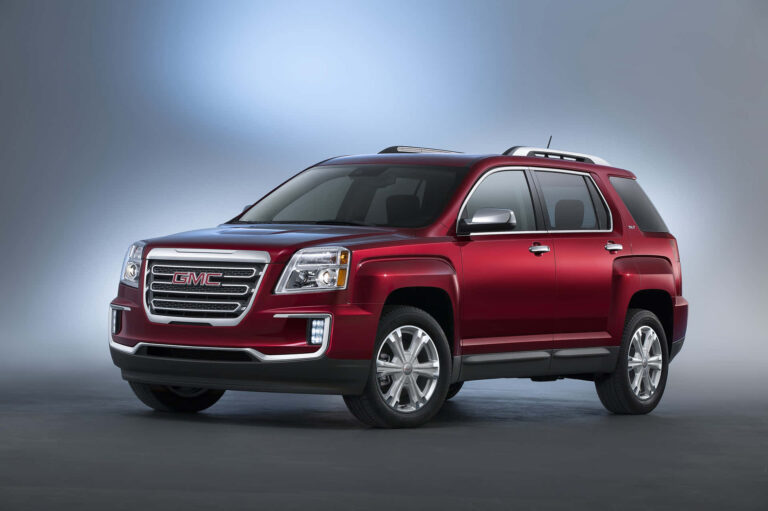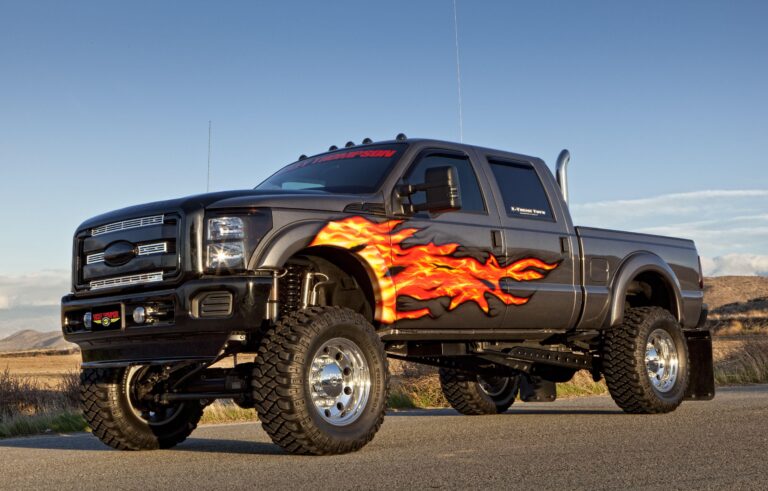Spotter Trucks For Sale: Your Comprehensive Guide to Optimizing Yard Operations
Spotter Trucks For Sale: Your Comprehensive Guide to Optimizing Yard Operations cars.truckstrend.com
In the bustling world of logistics and supply chain management, efficiency is paramount. Every second saved, every maneuver optimized, contributes to a smoother, more profitable operation. While the roaring highway semi-trucks often grab the spotlight, there’s a quieter, yet equally crucial, workhorse that keeps the gears turning behind the scenes: the spotter truck. Also known as yard trucks, terminal tractors, shunt trucks, or yard dogs, these specialized vehicles are the unsung heroes of distribution centers, intermodal facilities, ports, and manufacturing plants, expertly shuttling trailers within confined spaces.
For businesses looking to streamline their yard operations, purchasing a spotter truck is a strategic investment. This comprehensive guide will delve into everything you need to know about "Spotter Trucks For Sale," from understanding their unique benefits to navigating the buying process and making an informed decision.
Spotter Trucks For Sale: Your Comprehensive Guide to Optimizing Yard Operations
What is a Spotter Truck? The Unsung Hero of the Yard
At first glance, a spotter truck might resemble a compact semi-truck, but its design is meticulously optimized for a very specific purpose: moving trailers quickly and safely within a limited area. Unlike over-the-road trucks designed for long-haul journeys, spotter trucks are built for high-frequency, low-speed maneuvers.
Key distinguishing features include:
- Short Wheelbase: Enables tighter turning radii, essential for navigating crowded yards and docking bays.
- High-Visibility Cab: Often positioned centrally or slightly offset, with large windows and sometimes a rear door, offering drivers unparalleled 360-degree views, crucial for safety in busy environments.
- Hydraulic Fifth Wheel Lift: Instead of requiring the driver to manually crank landing gear, spotter trucks feature a powerful hydraulic lift system that raises and lowers the fifth wheel, allowing for quick coupling and uncoupling of trailers without leaving the cab. This is a game-changer for efficiency.
- Robust Chassis: Built to withstand the constant wear and tear of repetitive heavy lifting and short-distance hauling.
- Automatic Transmission: Virtually all spotter trucks come with automatic transmissions for ease of operation and reduced driver fatigue, especially with frequent stops and starts.
- No Sleeper Berth: Reflecting their yard-only purpose, they lack the sleeping accommodations found in long-haul trucks.
In essence, a spotter truck is a purpose-built machine designed to maximize productivity and safety in trailer spotting operations, making them indispensable for any facility with significant trailer movement.
Why Buy a Spotter Truck? The Undeniable Benefits

Investing in a dedicated spotter truck offers a multitude of advantages that directly impact operational efficiency, safety, and cost savings.
- Enhanced Efficiency and Speed: The primary benefit. The hydraulic fifth wheel lift allows drivers to connect and disconnect from trailers in seconds, dramatically reducing turnaround times compared to using a standard semi-truck. This translates to more trailers moved per hour and reduced idle time for both trailers and drivers.
- Improved Safety: With superior visibility, tight turning capabilities, and robust construction, spotter trucks significantly reduce the risk of accidents in crowded yards. Drivers have a clearer view of obstacles, pedestrians, and other equipment, leading to fewer collisions and a safer working environment.
- Reduced Wear and Tear on Over-the-Road Trucks: Using highway tractors for yard spotting is inefficient and costly. Constant coupling/uncoupling, tight turns, and low-speed maneuvering put undue stress on components not designed for such tasks, leading to premature wear on clutches, transmissions, and tires. A spotter truck preserves your valuable highway fleet for its intended purpose.
- Lower Operating Costs: While they consume fuel, spotter trucks are generally more fuel-efficient for yard operations than larger semi-trucks, as their engines are optimized for low-speed torque rather than highway speeds. Reduced maintenance on highway trucks also contributes to overall cost savings.
- Driver Comfort and Ergonomics: Spotter truck cabs are designed for frequent ingress and egress, with comfortable seating and intuitive controls, reducing driver fatigue over long shifts. The ease of coupling/uncoupling also lightens the physical load on drivers.
- Versatility in Application: Spotter trucks are vital across various industries:
- Distribution Centers: Moving trailers to and from loading docks.
- Ports and Rail Yards: Shunting intermodal containers.
- Manufacturing Facilities: Transporting raw materials and finished goods between production areas.
- Cross-Dock Operations: Rapid movement of freight.

Types of Spotter Trucks: Finding Your Perfect Match
When exploring "Spotter Trucks For Sale," you’ll encounter various types tailored to different needs and budgets.
- New vs. Used Spotter Trucks:
- New: Offers the latest technology, full manufacturer warranties, and often customization options. Higher upfront cost but potentially lower immediate maintenance. Ideal for businesses with a stable budget and long-term fleet plans.
- Used: A more budget-friendly option, providing immediate cost savings. A well-maintained used truck can offer excellent value. However, they come with higher risks (no warranty, unknown history) and may require more immediate maintenance. Thorough inspection is critical.
- Fuel Types:
- Diesel: The traditional and most common choice. Known for power, reliability, and robust performance in all weather conditions. Widely supported with parts and service.
- Electric: Growing in popularity, especially for indoor or emission-sensitive operations. Offers zero tailpipe emissions, quieter operation, and potentially lower "fuel" costs (electricity). However, they have a higher upfront cost, require charging infrastructure, and battery range can be a limiting factor for continuous, high-volume operations.
- Alternative Fuels (CNG/LPG): Less common but available for specific applications where natural gas or propane infrastructure is present.
- On-Road vs. Off-Road (DOT Compliant):
- Off-Road (Yard Only): Most common. These trucks are designed exclusively for private property and typically do not meet Department of Transportation (DOT) regulations for public road use (e.g., no headlights, taillights, or registration). They are simpler and often less expensive.
- On-Road (DOT Compliant): Equipped with full lighting, braking systems, and other features required for limited public road travel. Useful for businesses that need to move trailers short distances between adjacent facilities or across public roads. These will be more expensive and require licensing and registration.
- Manufacturers: Key players in the spotter truck market include:
- Kalmar Ottawa: A market leader, renowned for durability and innovation.
- Capacity: Another prominent manufacturer, known for robust designs.
- Terberg: A European manufacturer gaining traction in North America, often known for advanced features.
- Autocar: While primarily known for vocational trucks, they also produce terminal tractors.
Key Considerations When Buying a Spotter Truck
Making the right purchase requires careful evaluation of your specific needs and operational environment.
- Application and Workload:
- How many trailers do you move daily?
- What are the average trailer weights?
- What kind of terrain (paved, gravel, inclines)?
- Will it operate indoors, outdoors, or both?
- Is continuous operation required, or will there be downtime for charging/refueling?
- Engine and Drivetrain:
- For heavy loads and continuous operation, a powerful diesel engine with ample torque is usually preferred.
- Consider transmission type (automatic is standard, but ensure it’s heavy-duty enough for your application).
- Fifth Wheel Capacity and Lift Height: Ensure the fifth wheel can handle your heaviest loaded trailers and provides sufficient lift height for easy coupling.
- Cab Features and Ergonomics:
- Visibility: Crucial for safety.
- Comfort: AC/heating, adjustable seating, intuitive controls.
- Safety Features: Backup cameras, proximity sensors, emergency stops.
- Maintenance and Parts Availability: Research the availability of parts and service for your chosen brand and model in your area. Common components are a plus.
- Budget and Total Cost of Ownership (TCO):
- Beyond the purchase price, consider fuel/electricity costs, routine maintenance, parts replacement, tires, and potential downtime.
- For electric trucks, factor in charging infrastructure costs.
- Service and Support: A reputable dealer offering good after-sales service, technical support, and training can be invaluable.
- Emissions Regulations: Be aware of local and federal emissions standards, especially for new diesel purchases or if operating in specific zones (e.g., California).
The Buying Process: Where to Find Spotter Trucks For Sale
Once you’ve identified your needs, it’s time to explore the market.
- Authorized Dealerships: The best source for new spotter trucks, offering warranties, financing options, and comprehensive service packages. Many also sell certified used models.
- Online Marketplaces: Websites like TruckPaper.com, CommercialTruckTrader.com, My Little Salesman, and even eBay Motors list a wide array of new and used spotter trucks from various sellers across the country.
- Equipment Auctions: Reputable auction houses (e.g., Ritchie Bros. Auctioneers, IronPlanet) frequently have spotter trucks for sale. Auctions can offer competitive pricing, but vehicles are often sold "as-is," making pre-purchase inspection even more critical.
- Rental Companies: Companies that rent out terminal tractors often sell off older fleet vehicles, which can be well-maintained due to regular service schedules.
- Direct from Businesses: Some large logistics companies or distribution centers may sell their used spotter trucks directly when upgrading their fleet. Keep an eye on industry forums or local business classifieds.
Practical Advice for Buyers:
- Always conduct a thorough pre-purchase inspection. For used trucks, this is non-negotiable. If possible, hire a qualified mechanic specializing in heavy equipment to inspect the engine, transmission, hydraulic system, fifth wheel, brakes, tires, and electrical system.
- Request maintenance records. A detailed service history provides invaluable insight into how well a used truck has been cared for.
- Test drive (if possible). Even in a yard, operating the truck yourself can reveal issues or confirm its suitability.
- Consider financing options. Dealerships and third-party lenders offer various financing solutions.
- Don’t rush the decision. A spotter truck is a significant investment; take your time to research and compare options.
Spotter Truck Estimated Price Guide
Prices for spotter trucks vary significantly based on condition (new/used), age, make, model, engine type, features, and hours/mileage. The table below provides estimated price ranges to give you a general idea. These are illustrative and can fluctuate widely based on market conditions and specific configurations.
| Category | Make/Model Example | Year Range | Condition | Key Features | Estimated Price Range (USD) |
|---|---|---|---|---|---|
| Used – Basic | Ottawa/Capacity (Older) | 2005-2012 | Fair | Diesel, standard cab, basic fifth wheel, high hours/miles | $20,000 – $45,000 |
| Used – Mid-Range | Ottawa/Capacity | 2013-2018 | Good | Diesel, well-maintained, mid-range hours, some modern features | $45,000 – $75,000 |
| Used – Premium | Ottawa/Capacity/Terberg | 2019-2022 | Excellent | Diesel/Electric (early models), low hours, advanced safety/comfort features | $75,000 – $110,000 |
| New – Diesel | Kalmar Ottawa T2/T2i | Current Year | New | Latest diesel engine, full warranty, advanced ergonomics, customizable | $130,000 – $180,000+ |
| New – Electric | Kalmar Ottawa T2e/T2V | Current Year | New | Zero emissions, lower operating costs (fuel), advanced telematics, full warranty | $200,000 – $280,000+ |
| On-Road (DOT) | Kalmar Ottawa T2/T2i | Various | Varies | Additional DOT compliance features (lights, brakes, etc.) | Add $10,000 – $30,000 to base |
Note: Prices do not include taxes, shipping, or any additional customization/upgrades.
Frequently Asked Questions (FAQ) about Spotter Trucks
Q1: What is the primary difference between a spotter truck and a regular semi-truck?
A1: A spotter truck (or terminal tractor) is specifically designed for moving trailers in confined spaces like yards, ports, and warehouses. It has a shorter wheelbase, a high-visibility cab, and a hydraulic fifth wheel lift for quick coupling/uncoupling. A regular semi-truck (highway tractor) is designed for long-haul transportation on public roads, focusing on fuel efficiency at highway speeds and driver comfort over long distances.
Q2: Can I use a spotter truck on public roads?
A2: Most spotter trucks are designed for "off-road" or "yard-only" use and do not meet Department of Transportation (DOT) regulations for public roads. However, "on-road" or "DOT-compliant" models are available, equipped with the necessary lights, brakes, and other features for limited public road travel. Always check the specific truck’s compliance and local regulations.
Q3: How much does a spotter truck cost?
A3: The cost varies significantly. Used spotter trucks can range from $20,000 to $110,000 depending on age, condition, and features. New diesel models typically cost between $130,000 and $180,000+, while new electric models are often higher, ranging from $200,000 to $280,000+. Refer to the price guide above for more details.
Q4: What is the typical lifespan of a spotter truck?
A4: With proper maintenance, a spotter truck can have a lifespan of 10 to 15 years, or even longer, often accumulating 20,000 to 30,000 engine hours or more. The robust construction is designed for demanding, repetitive work cycles.
Q5: Are electric spotter trucks a good investment?
A5: Electric spotter trucks offer significant benefits like zero emissions, quieter operation, and potentially lower long-term operating costs (due to cheaper electricity vs. diesel and fewer moving parts). However, they have a higher upfront cost and require charging infrastructure. They are an excellent investment for operations prioritizing sustainability, reducing noise pollution, and benefiting from lower "fuel" costs, especially where continuous 24/7 operation isn’t strictly necessary without charging breaks.
Q6: What kind of maintenance do spotter trucks require?
A6: Spotter trucks require regular preventative maintenance similar to other heavy equipment, including oil changes, fluid checks (hydraulic, transmission), filter replacements (air, fuel, oil), brake inspections, and tire checks. The hydraulic fifth wheel system also requires specific attention and lubrication. Given their constant stop-and-go nature, brakes and tires often wear faster than in highway trucks.
Conclusion: A Smart Investment for Streamlined Logistics
Spotter trucks, whether new or used, represent a strategic investment for any business involved in logistics, warehousing, or manufacturing that handles a significant volume of trailers. Their specialized design delivers unparalleled efficiency, safety, and cost savings in yard operations, freeing up your valuable over-the-road trucks for their intended purpose.
By carefully assessing your operational needs, understanding the different types available, and conducting thorough due diligence during the buying process, you can acquire a spotter truck that becomes an invaluable asset, driving productivity and ensuring the smooth flow of goods within your facility. In the complex dance of the modern supply chain, the right spotter truck can truly be the choreographer of success.
